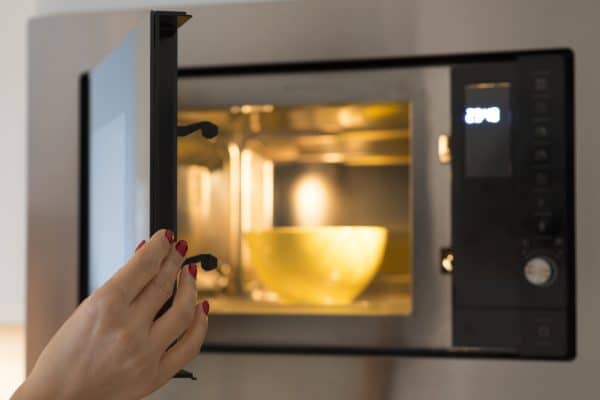If you're still heating your food in the microwave, it might be time to stop. When plastic is heated, the chemical bonds are broken. This causes harmful substances to get into your food. The combination of plastic and heat is dangerous. The microwaves also denature the proteins in your food.
To watch my full conversation with Natren Probiotics founder Natasha Trenev, where we delve deeper into this topic and much more, please click below to watch our in-depth conversation.
Even if you use glass or ceramic containers, the problem remains: the microwave itself changes food at the molecular level. A Swiss scientist named Hans Hertel* investigated this in the 1980s. His research showed that microwaved food changed the blood. It reduced hemoglobin and damaged proteins. In other words, it weakened the blood's ability to carry oxygen and changed the way the body processed nutrients.
Instead of being celebrated, Hertel was sent to prison for publishing his findings. Unfortunately, this is not uncommon. When a scientist reveals uncomfortable truths, there is often a backlash in the industry.
A safer and healthier alternative
Instead of a microwave, invest in a toaster. You'll be amazed at how often you use it. It heats food quickly and evenly, without radiation or biochemical risks. Choose a model with a ceramic coating or stainless steel – avoid non-stick or Teflon coatings.

For over 30 years, I've cooked mostly in a toaster oven (it's amazing how much fits in there!). Natasha shared that she too has been using a toaster for decades. When she built her house 35 years ago, she even refused to install a microwave. She even had to sign a waiver with the contractor in California saying she didn't want one. That's commitment!
Once you switch to a toaster oven, you'll notice that your large oven is rarely used. It's more energy efficient and your food tastes better.
The big picture: industry pressure and regulation
What many people don't realize is how deeply entrenched the microwave industry is in building codes. In Los Angeles County, homes are required to have electrical wiring for a microwave. This creates unnecessary costs and makes it difficult for people to make different choices. These regulations reflect how industries influence public policy, often at the expense of health.

It's time we started spending money on the right things. Glass containers instead of plastic. Real cookware instead of chemical coatings. Clean food instead of convenience. Every small decision shifts the larger system toward wellness.
Building a healthier home
Natasha also mentioned that she buys her water in glass bottles, for both home and car use. It takes more effort, but that’s how change happens – one conscious decision at a time. I have a stainless steel Berkey water filter and I also use either glass bottles or stainless steel travel mugs when I leave the house. Cutting out plastic, microwaves, and chemical coatings may seem small, but these choices protect your hormones, your gut, and your long-term health.
My final thoughts
Many of us grew up believing that microwaves were harmless. But as more evidence emerges, it becomes clear that convenience comes with a cost. If you care about your health, you should throw away your microwave. Replace it with a toaster or stove for cooking. Store your food in glass jars. Avoid plastic whenever you can. If you must use plastic wrap or plastic bags, cover your food with wax paper first and then place it in plastic.
Your body will thank you. And as always: listen to your gut feeling.
You may also be interested in:
Reference*
![]()
Jini Patel Thompson is an internationally recognized expert in natural healing for digestive diseases. She healed herself from widespread Crohn's disease and has been medication and surgery free for over 25 years. Jini has appeared on numerous podcasts, TV and radio shows in the US, UK, Canada and Australia, giving people hope and vision on how to heal their colitis, Crohn's disease, diverticulitis and irritable bowel syndrome (IBS) using all-natural methods. Her books on natural healing of digestive diseases have been sold in over 80 countries worldwide. Jini is married and has three children, nine sheep, 11 horses, a cat and three dogs.


